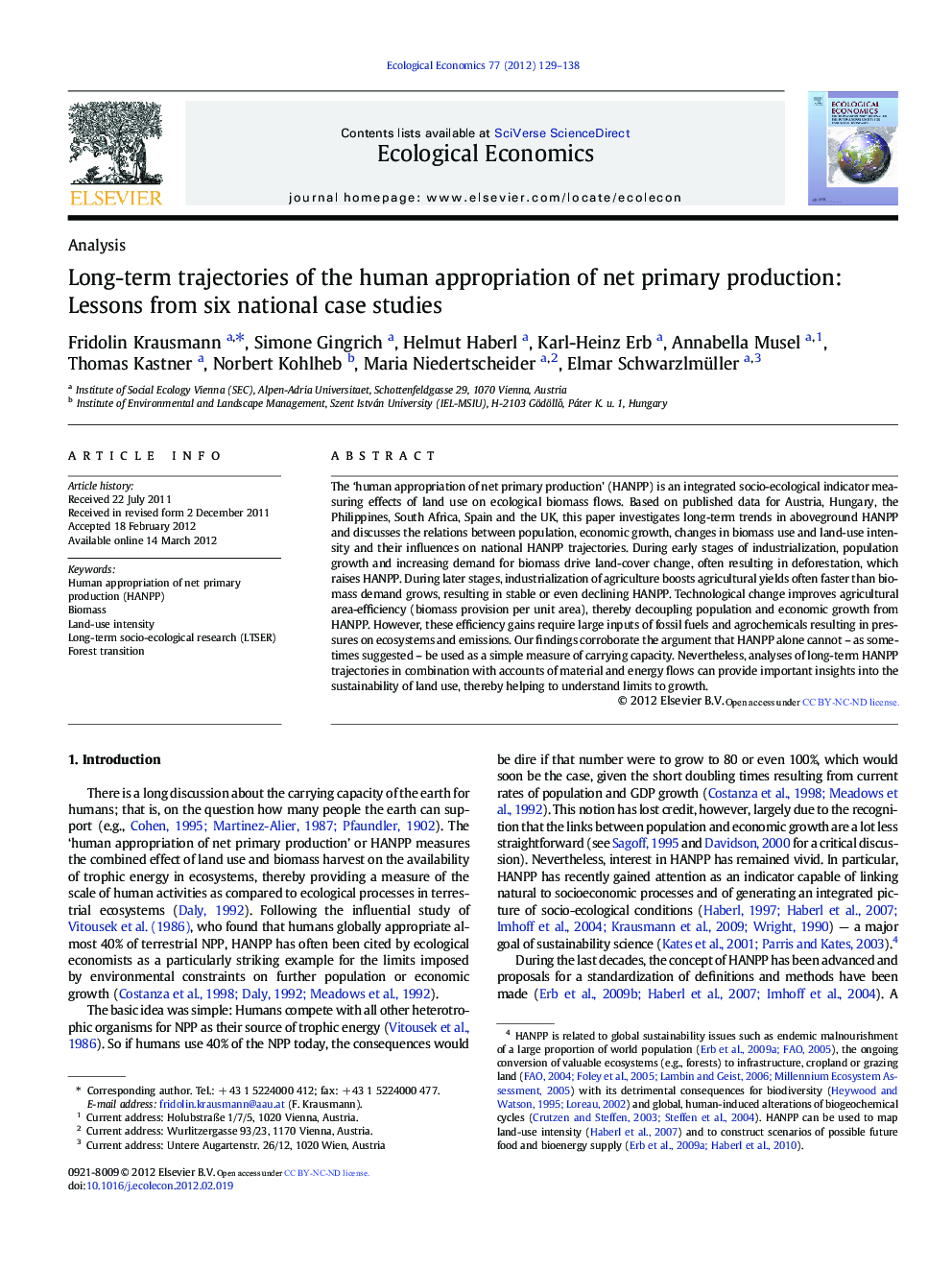| Article ID | Journal | Published Year | Pages | File Type |
|---|---|---|---|---|
| 5050283 | Ecological Economics | 2012 | 10 Pages |
The 'human appropriation of net primary production' (HANPP) is an integrated socio-ecological indicator measuring effects of land use on ecological biomass flows. Based on published data for Austria, Hungary, the Philippines, South Africa, Spain and the UK, this paper investigates long-term trends in aboveground HANPP and discusses the relations between population, economic growth, changes in biomass use and land-use intensity and their influences on national HANPP trajectories. During early stages of industrialization, population growth and increasing demand for biomass drive land-cover change, often resulting in deforestation, which raises HANPP. During later stages, industrialization of agriculture boosts agricultural yields often faster than biomass demand grows, resulting in stable or even declining HANPP. Technological change improves agricultural area-efficiency (biomass provision per unit area), thereby decoupling population and economic growth from HANPP. However, these efficiency gains require large inputs of fossil fuels and agrochemicals resulting in pressures on ecosystems and emissions. Our findings corroborate the argument that HANPP alone cannot - as sometimes suggested - be used as a simple measure of carrying capacity. Nevertheless, analyses of long-term HANPP trajectories in combination with accounts of material and energy flows can provide important insights into the sustainability of land use, thereby helping to understand limits to growth.
⺠We analyzed HANPP time series for Austria, Hungary, the Philippines, South Africa, Spain & the UK. ⺠Biomass harvest grew considerably in all six cases. ⺠In early stages of industrialization, population growth and biomass demand often drive up HANPP. ⺠In later stages of industrialization, technological change often results in falling HANPP levels. ⺠HANPP decreases were only achieved with massive increases in fossil fuel consumption and use of agrochemicals.
